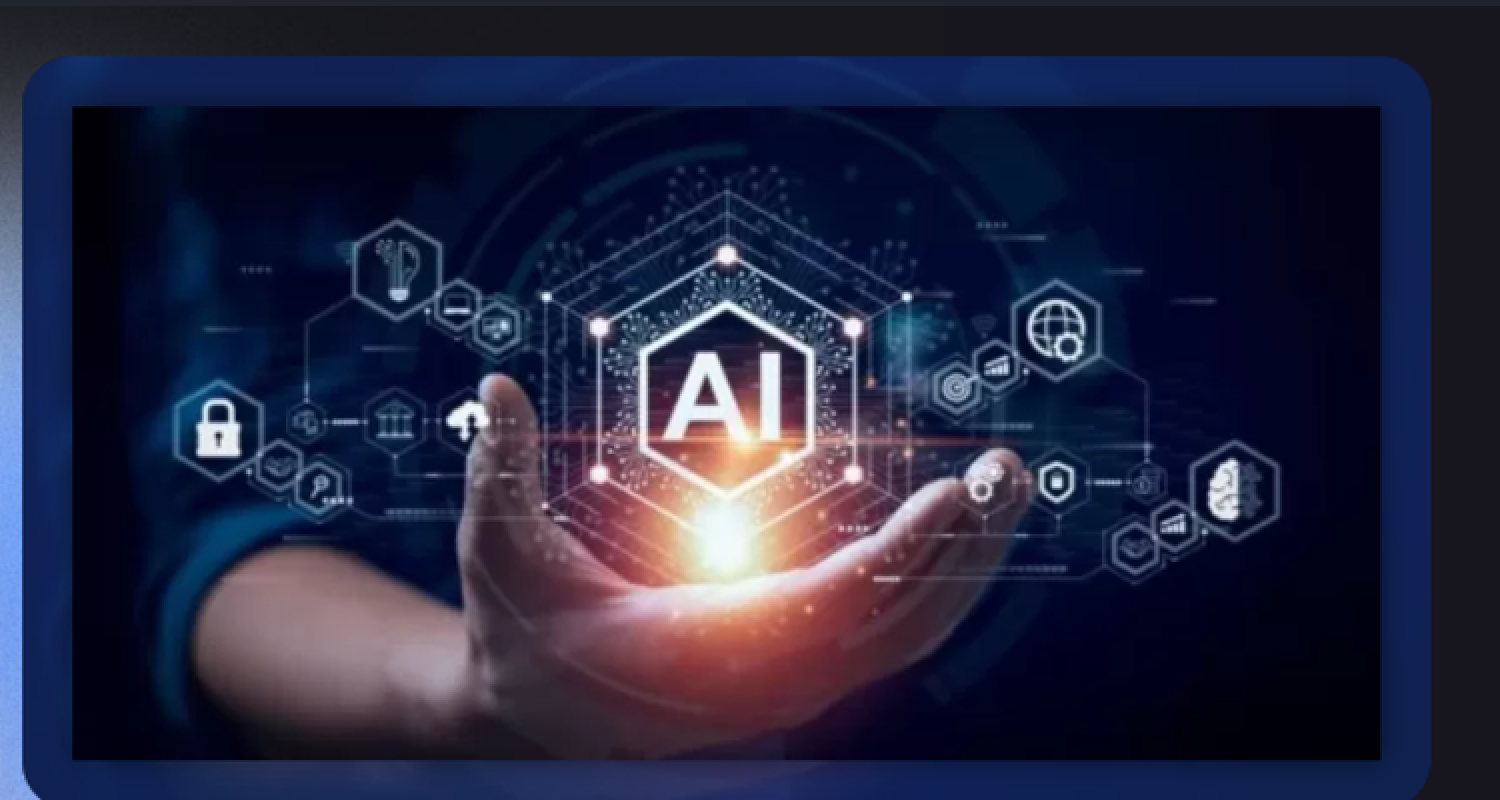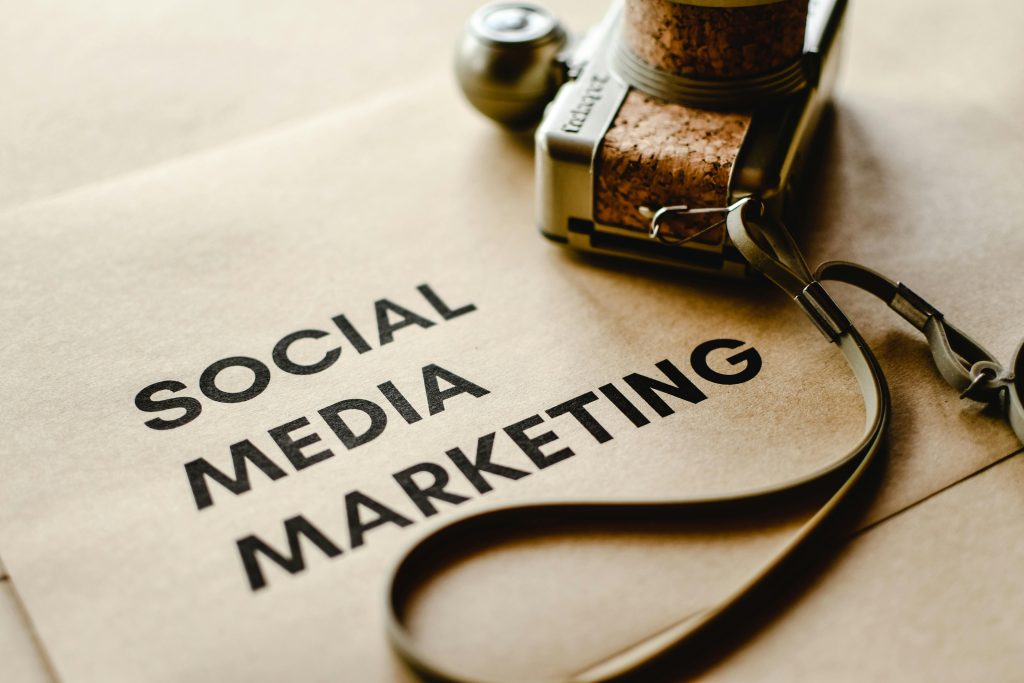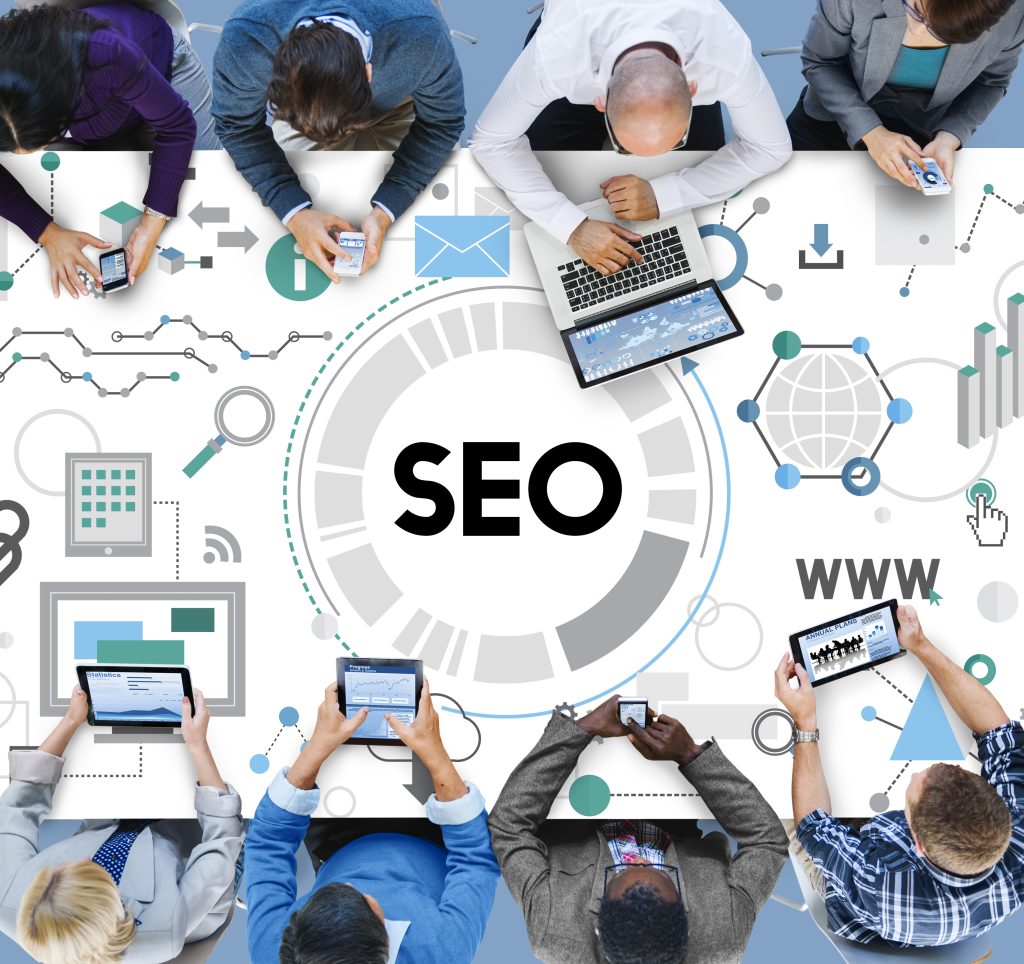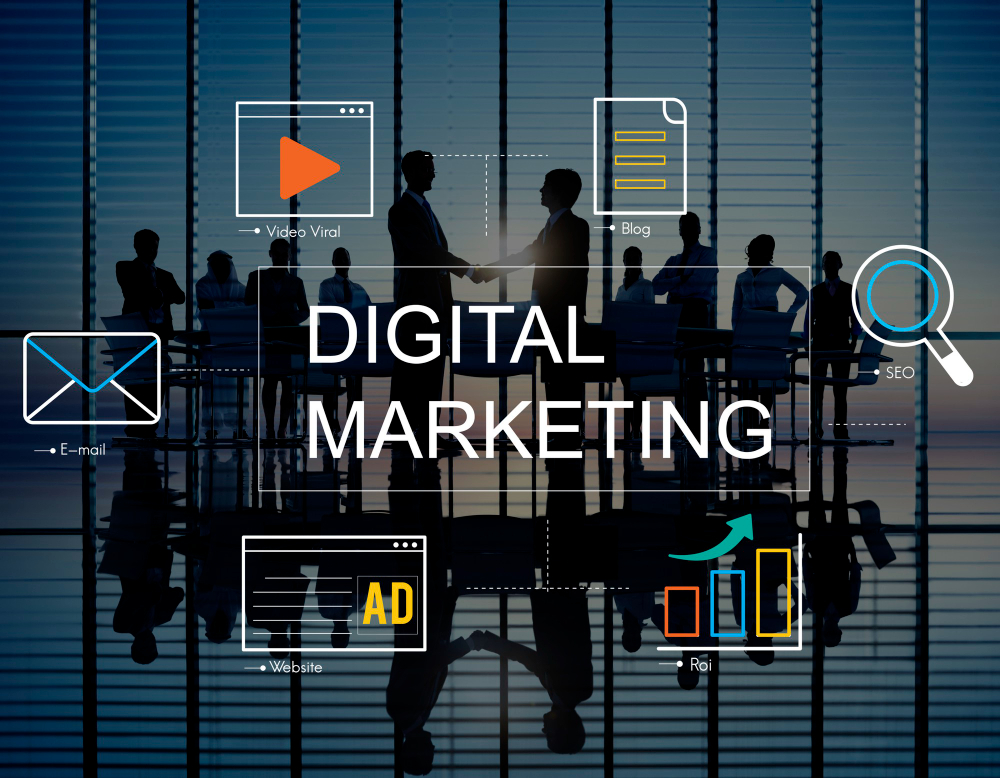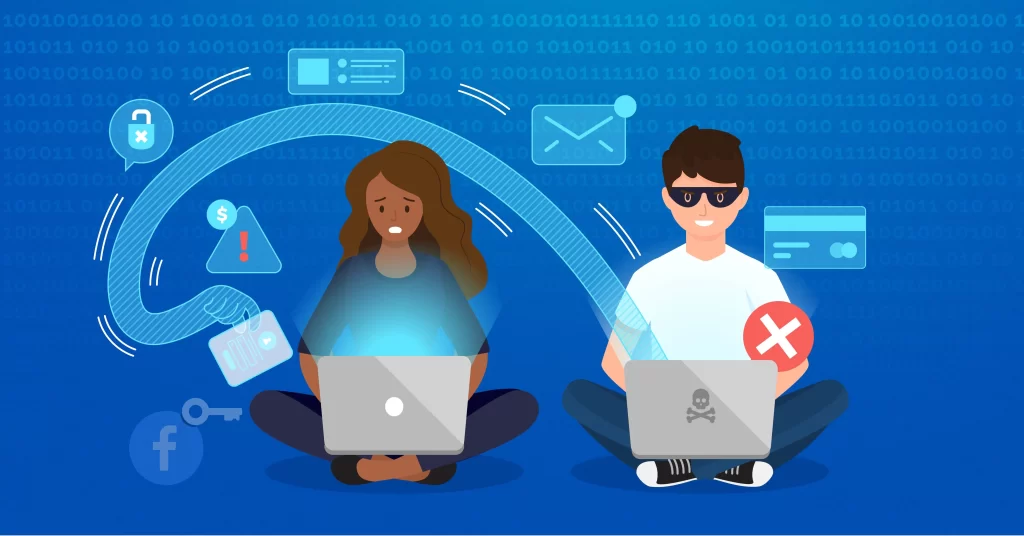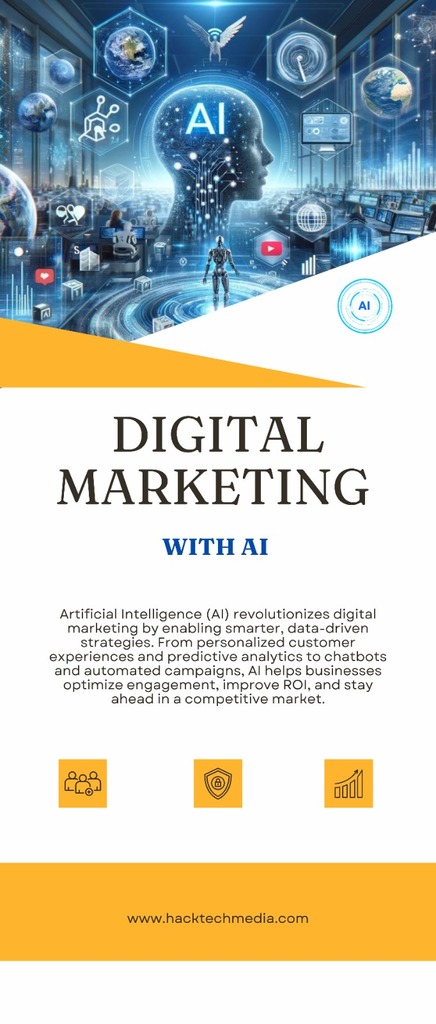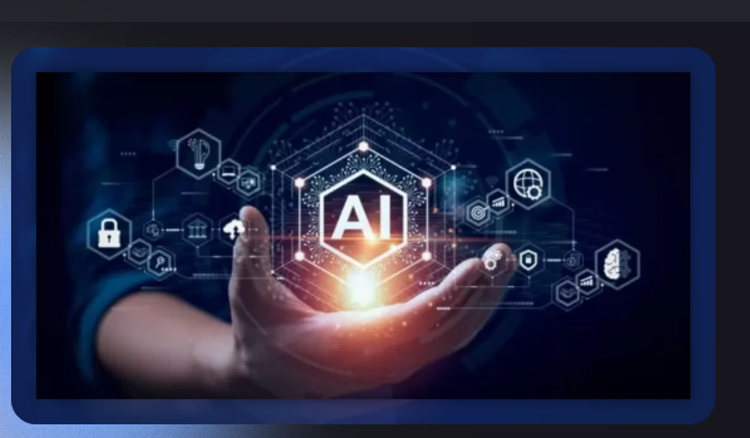
The Hard Truth About Digital Marketing in 2025
2025 Digital Marketing Course with AI The Ultimate Guide we will tell about AI is changing digital marketing faster than we can blink. In 2025, 73% of marketing teams use AI tools daily, according to recent McKinsey data. Yet most marketers still feel lost.
I know this because I’ve trained over 500 marketing professionals in AI tools this year. Their biggest fear? Being replaced by AI. Their second biggest fear? Not knowing how to use AI effectively.
Here’s what nobody tells you: AI won’t replace marketers. But marketers who use AI will replace those who don’t.
Think about this: While you’re manually writing social media posts, your competitors are using AI to create and test 100 variations in minutes. While you’re guessing what your customers want, they’re using AI to predict customer behavior with 95% accuracy.
The good news? You’re not too late. 2025’s digital marketing landscape is still taking shape. The better news? This guide will show you exactly how to master AI-powered marketing – from basic automation to advanced predictive analytics.
This isn’t just another “Digital Marketing Course with AI.” This is your step-by-step plan to become the kind of marketer companies will fight to hire in 2025.
Want proof? Every strategy in this guide comes from real case studies of marketers who increased their productivity by 300% after learning these AI tools.
Are you ready to stop watching the AI revolution and start leading it?
How to Leverage AI-Driven Marketing Strategies Today
- Ease your marketing challenges with AI tools.
- Capture new customer insights and make your marketing smart.
- Enhance your content with AI personalization.
Step 1: Identify AI Tools that Fit Your Marketing Needs
- List Popular AI Tools for Varied Marketing Tasks:
Start by making a list of AI tools that can assist in different aspects of your marketing. For instance, HubSpot for customer relationship management, Jasper for content creation, and Salesforce Einstein for predictive analytics. - Discuss the Importance of Choosing the Correct Tools:
It’s crucial to pick tools that align with your business goals. The right AI tools help streamline operations, reduce manual efforts, and improve results. A wrong choice might lead to wasted time and resources. Make sure the tools support core objectives like increasing engagement or enhancing customer experience. - Tips for Assessing Tool Effectiveness:
Check reviews and case studies. Look at integrations with existing systems. Verify if it provides actionable insights and reporting. Lastly, run trials to test usability before committing to a full-scale roll-out.
Making the Right Choice
Consider scalability, cost, and user-friendliness. Check if customer support is robust. Ensure it adapts to future needs. This approach ensures the tools you select will grow with your business.
Step 2: Implement AI in Customer Segmentation
- Explain Using AI for Precise Customer Targeting:
With AI, marketers can target customers with better accuracy. AI uses data like purchase history, browsing patterns, and demographics to create targeted campaigns. This makes your approach more personalized and effective. - Share Examples of Successful Segmentation Using AI:
For instance, Adobe Experience Cloud uses AI to create segments of users based on detailed attributes. It allows marketers to send hyper-targeted ads to each segment, boosting engagement rates significantly. - Provide Suggestions on How to Measure the Impact:
Track metrics such as conversion rates and engagement levels. Observe changes in customer satisfaction and retention. Use A/B testing to compare performance against non-AI campaigns.
Fine-Tuning Segmentation
Incorporate psychographic data for a granular approach. Adapt segments dynamically in real time based on new data inputs. This allows for quick pivots in strategy and maintains relevance with your audience.
Step 3: Optimize Content with AI
- Discuss Using AI Tools for Content Creation:
Tools like Writesonic and Copy.ai can help generate content quickly and efficiently. These tools analyze data to deliver content that resonates with your target audience, keeping them engaged. - Explain AI-Driven Content Personalization:
AI personalization customizes content for each user’s preferences and behavior. It uses algorithms to tailor messages on websites, emails, social media, and more. This enhances user experience and boosts conversion. - Offer Best Practices for AI Content Optimization:
Regularly update and test your content. Use analytics to gauge performance. Ensure usability and readability. Finally, focus on mobile optimization, as mobile users form a large part of your audience.
Maintaining Content Quality
Keep an eye on SEO trends to align your content appropriately. Maintain a balance between automation and human touch for authenticity. Quality assurance is key to maintaining a strong brand voice.
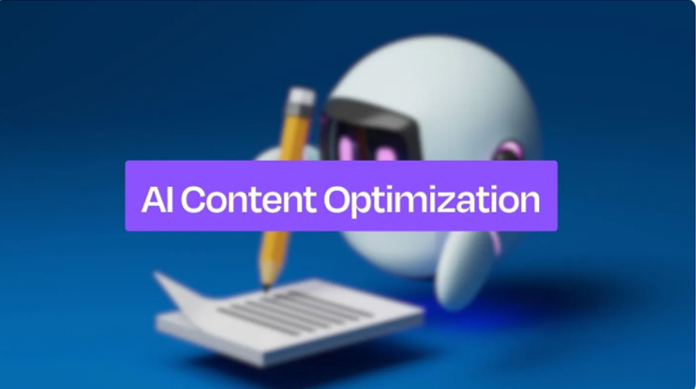
By following these steps, you’ll integrate AI effectively into your marketing efforts. This approach tackles the frequent question How is AI used in digital marketing? and sets a solid foundation for leveraging AI tools efficiently in daily roles.
💡 Penny’s recommendation
🪄 Include statistics on how AI-driven marketing has increased ROI for companies by X% over the past years according to [source]. Mention a quote from a marketing expert on the future impact of AI on consumer targeting.
🌁 Create a comparison chart of the effectiveness of AI tools versus traditional marketing methods. Include an infographic highlighting the AI segmentation process and its benefits in real-time audience adjustments.
🚀 Insert a hyperlink to a detailed case study of a brand successfully using AI for customer segmentation.
🚀 Add a callout box highlighting key features to look for in AI marketing tools.
🕒 5 minutes
The Role of AI Tools in Digital Marketing 2025
- New AI tools boost productivity and enhance strategies.
- Stay updated with AI tools for improved results.
- AI tools streamline marketing efforts efficiently.
1. Emerging AI Tools and Their Functions
In 2025, AI tools are more essential than ever. They transform how marketers reach and engage with audiences. The range of new tools is vast. They’re designed to provide personalized experiences, enable data-driven choices, perform voice searches, and offer advanced chatbots. According to a study, 88% of marketers already use AI in daily tasks. This percentage may grow because 90% plan to invest more in AI soon.
The core functions of these tools include analyzing customer behaviors, preferences, and purchase histories. This leads to creating relevant marketing messages. With AI, marketers can predict trends and behaviors, essential for future-scenario planning. The emphasis on tailored marketing ensures that campaigns feel personalized and not generic. AI helps determine what works best and adjusts strategies based on solid data.
2. How to Stay Updated with AI Tool Advancements
Keeping abreast of AI tool advancements is key. Start by using resources like SurveyMonkey and Zapier for insights. Platforms like Intersys Limited also offer lists of top AI tools for digital marketing. Such resources are invaluable for professionals seeking to maintain a competitive edge.
To integrate new tools effectively, consider running small pilot projects first. This allows teams to understand tool functionality and assess compatibility with existing systems. Integrating tools gradually ensures seamless adaptation. AI’s fast-changing nature means ongoing learning is crucial. Platforms specializing in AI education offer courses designed to keep professionals updated. A proactive approach to learning can help marketers leverage AI most efficiently.
Practical Steps to Integrate AI
Embrace new AI tools by being open to change. Identify gaps in current processes that AI could enhance. For instance, if data analysis is time-consuming, look to AI tools for faster insights. Implement the tools step-by-step, ensuring team members are well trained. It’s vital to keep the learning ongoing as AI evolves quickly. Stay connected with industry networks and forums to know the latest trends. This proactive approach ensures you’re not left behind.
AI transforms digital marketing. By staying informed and adept at using these tools, marketers can lead in 2025’s competitive landscape.
recommendation
🪄 Include links to recent studies or reports highlighting AI’s effectiveness in digital marketing. Add a quote from a marketing leader discussing the importance of AI tools for future-proofing marketing strategies.
🌁 Create an infographic showcasing the increase in AI tool usage among marketers from 2023 to 2025. Develop a flowchart illustrating the steps for effective AI tool integration in marketing processes.
🚀 Add a statistic on current ROI improvements due to AI tool implementation.
🚀 Include a brief case study example of a company successfully using AI for personalized marketing.
🕒 5 minutes
Future Trends in Digital Marketing Education
- AI in marketing courses is becoming essential.
- Practical AI skills are prioritized over theory.
- Hands-on projects enhance learning outcomes.
1. Shift Toward AI-Integrated Courses
Overview of Colleges Offering AI-Focused Marketing Courses
Many universities are stepping up by offering courses that emphasize artificial intelligence in marketing. Schools are recognizing the importance of AI, and incorporating it into their curriculums to prepare students for the digital marketing world. Courses like the “Marketing AI” course by eCornell focus on using machine learning and AI within marketing strategies. These courses go beyond traditional teaching. They provide students with a clear view of how AI can improve performance marketing. Investment in resources, staff training, and AI-driven syllabus updates are key for these programs. The Digital Marketing Institute also supports these learning outcomes. They offer targeted AI marketing courses that are already being widely adopted.
Discuss Curriculum Changes Seen in 2025
Curriculums around digital marketing education are shifting. They’re now prioritizing real-world applications instead of just focusing on theoretical knowledge. By 2025, many programs include AI tools such as ChatGPT and Descript in their teaching. This focus prepares students to understand AI’s potential and apply it actively. Classes now showcase AI’s ability to automate marketing processes and optimize strategies effectively. These changes meet the demand for marketing professionals who can handle AI tools proficiently. The curriculum focuses on providing a robust mix of technical and strategic insight. This helps students develop essential skills for the evolving market landscape. Regular workshops and projects allow learners hands-on experiences, ensuring knowledge extends beyond textbooks.
Explain the Benefits of AI Integration for Students
Students gain a competitive edge when AI is integrated into their courses. They learn how to harness AI to improve marketing tactics, make data-driven decisions, and enhance customer engagement. As mentioned by the U.S. Department of Education, “layering machine learning and artificial intelligence on top of performance marketing will supercharge this process.” This quote highlights how crucial AI skills are for developing savvy marketing strategies. Besides tech skills, students also learn to tackle challenges like data privacy and digital ethics. This comprehensive education equips them for today’s job market, where there is a growing demand for AI knowledge. Institutions like Cornell and the Digital Marketing Institute prepare students for diverse roles by ensuring they leave with both technical skills and ethical awareness.
2. Increased Focus on Practical AI Skills
Importance of Hands-on AI Training in Courses
Hands-on learning is no longer optional. Almost half of students now value real-world AI projects over classroom lectures. The emphasis on practical training ensures that students know how to apply AI tools effectively in marketing scenarios. This approach bridges the gap between theory and practice. Students are better prepared to solve complex problems in unpredictable market environments by managing real-world data. Incorporating AI projects into studies fosters critical thinking and adaptability. When students engage with AI systems, they understand the market dynamics better, learning to improve efficiency and target correctly.
Examples of Real-World AI Marketing Projects
Real-world projects are central to mastering AI in marketing. For instance, the University of Edinburgh incorporates projects where students use AI-driven tools to measure marketing performance. Tools like ChatGPT are employed to create tailored marketing content. Descript is used for refining marketing videos with automated editing. Students tackle real-life problems, such as optimizing ad spend or improving customer outreach, using AI-driven insights. These experiences are pivotal in helping learners apply what they learn in class to actual marketing challenges. Exposure to such projects solidifies understanding and enhances problem-solving capabilities.
Share Student Testimonials on Skill Application
Many students see a direct benefit from hands-on learning. A marketing student from the Digital Marketing Institute stated that practical AI projects “made marketing concepts come alive.” They emphasize that the ability to directly apply tools like Bard has enhanced their understanding of customer analytics. Students often express confidence in entering the job market with tangible skills. Testimonials show that these experiences make the transition into professional roles smoother, helping students stand out to employers. Mastering practical skills in a controlled environment translates into success in the real world.
recommendation
🪄 Highlight the potential collaboration opportunities between leading tech companies and educational institutions in designing AI-integrated courses. Include emerging statistics that showcase the growing importance of AI skills in job postings within the marketing sector from reliable sources like LinkedIn or Indeed.
🌁 Create an infographic that outlines the components of an AI-integrated curriculum, including AI tools and hands-on project details. Design a visually appealing statistics graph showing the percentage increase in universities offering AI-focused marketing courses over the past few years.
🚀 Add a quote from a tech industry leader about the future demand for AI skills in marketing.
🚀 Include a case study of a successful course that integrates AI tools like ChatGPT.
🕒 5 minutes
Predictions for 2025: Integrating AI in Marketing Courses
- Balance automation with human creativity.
- Rising demand for AI skills in marketing.
- AI’s influence on digital marketing and ethics.
Balance Between AI and Human Skills
Marketers will aim to strike the right balance between using machines and adding a personal touch. AI can handle data and analyze trends quickly. However creativity and emotional understanding are still unique to humans. The role of marketers is shifting to that of strategists. They need to guide AI systems with insights that machines can’t derive. This blend is crucial.
There will be a greater focus on specific skills in marketing courses. For example, learning to interpret AI insights and apply them creatively will be key. This may include improving expertise in data analysis, storytelling, and context-aware marketing strategies. Future professionals will need soft skills like critical thinking and adaptability more than ever.
Marketing students should consider books like “Competing in the Age of AI” by Marco Iansiti and Karim R. Lakhani. This book digs deep into how digital transformation affects businesses. It’s expansive on the impact of AI on traditional business functions, including marketing.
Growing Demand for AI Experts in Marketing
As AI changes the landscape, AI expertise in marketing will be a hot commodity. Companies will hunt for marketers with the ability to integrate AI systems into their strategies. This means understanding both the technical and business sides of AI. Marketers fluent in AI jargon, tools, and applications will stand out.
Career growth in AI marketing roles is set to rise. Familiar positions like digital marketing specialists and data analysts will evolve. New roles like AI marketing strategist or AI ethics consultant could emerge. To keep up, professionals should consider certifications from places like AI-driven curriculum academies or workshops. These credentials verify your knowledge and add credibility to your profile.
Books such as “Human + Machine: Reimagining Work in the Age of AI” by Paul R. Daugherty and H. James Wilson could be helpful. It explores how combining human creativity with AI’s efficiency is redefining work. This context is vital for those looking to delve deeper into the subject.
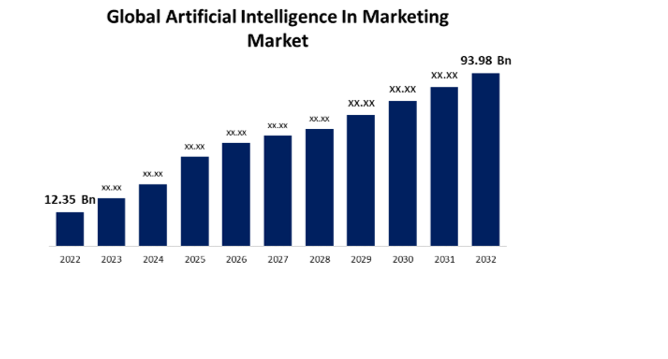
What is the Future of Digital Marketing with AI?
AI’s impact on consumer behavior is profound. Marketers can predict trends and personalize experiences more effectively. This technology lets businesses reach consumers in new, pervasive ways, tailoring ads to subtle nuances in preferences and behavior. It changes how companies interact, giving marketing a new dimension.
Yet, this influence raises ethical concerns. AI ethics in marketing is a growing field of discussion. The use of algorithms in decision-making can lead to biases if not monitored. Marketers must focus on transparency and fairness. The ethical deployment of AI means ensuring consumers’ data stays protected and their rights, upheld. Books like “Weapons of Math Destruction” by Cathy O’Neil shed light on how algorithms can be both tools and threats.
Common questions like, “Is AI a threat to digital marketing?” and “Will digital marketing be taken over by AI?” often arise. For now, AI acts as a complementary skill, enhancing, not replacing, the need for human input. ChatGPT, while helpful, is likely to aid digital marketers rather than replace them. Critical thinking, creativity, and strategy are areas where human skills still excel. Reading materials like “Artificial Intelligence: A Guide to Intelligent Systems” by Michael Negnevitsky provide breadth on AI technologies and applications in various domains, including marketing.
recommendation
🪄 Include statistics on the projected growth rate of AI in marketing jobs by 2025 to highlight demand. Cite new research on consumers’ trust levels in AI-driven marketing from a reputed source like Gartner.
🌁 Create a flowchart detailing the integration process of AI tools in marketing strategies. Develop an infographic comparing the growth of traditional marketing roles versus AI-focused roles using recent data.
🚀 Add a link to an online course for AI in marketing to provide immediate learning resources.
🚀 Include a quote from a leading digital marketing professional on future skills needed.
🕒 9 minutes
Conclusion
Digital marketing and AI skills will stay valuable through 2025 and beyond. The steps and knowledge we covered show a clear path: learn AI tools, understand customer data, and mix automation with human skills.
What matters most is taking action. Start by picking one AI tool from the list we discussed. Test it in your current marketing work. Learn its features. Track the results. This hands-on experience will build your confidence.
The job market wants marketers who know AI. But they also need people who can think beyond the tools. Focus on building both technical and strategic skills. Take online courses. Join AI marketing communities. Practice with real projects.
Remember this: AI tools change fast, but good marketing principles remain. Keep learning about new AI developments. Stay updated on marketing trends. Combine both to create better campaigns.
Your next step is simple: Look at your current marketing work. Find one task that AI could help with. Start there. Small steps lead to big changes.
The future of digital marketing needs people like you – those who understand both AI’s power and its limits. Your learning journey starts now.

